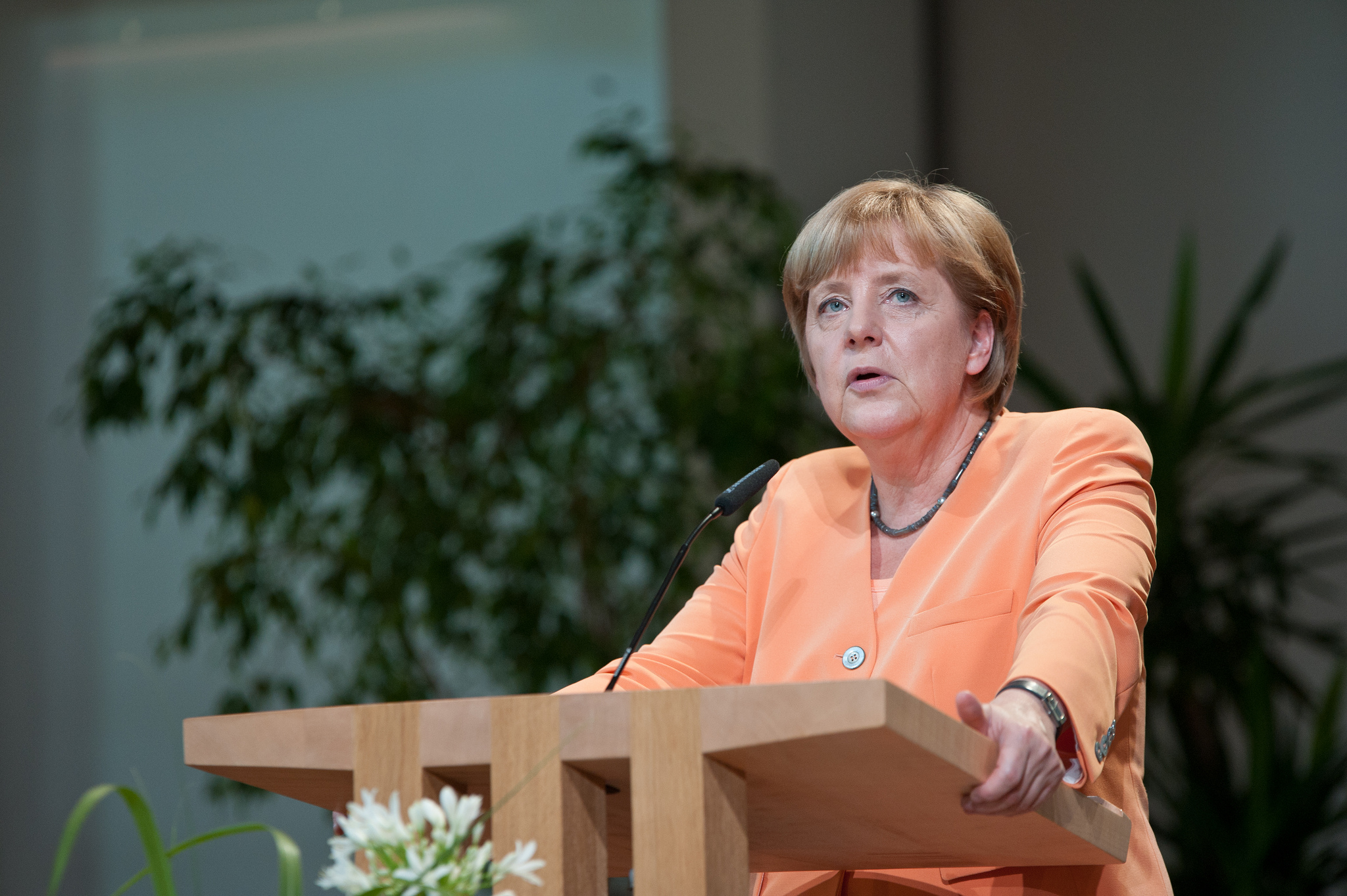Time Magazine named Angela Merkel as 2015’s Person of the Year. It was an interesting choice considering that she barely got into the Top 10 list by public vote, trailing Bernie Sanders, Malala Yousafzai, Pope Francis and refugees. Still, when Time justified choosing Merkel, it became clear that she exhibited the leadership skills and influence that made her the right choice for this honor.
Leadership is not just about following the people’s will – that’s easy. True leadership is demonstrated when tough choices need to be made and people might not agree with the necessary decisions. The courageous conviction to follow through on a plan of action is vital to any real leader, and Merkel demonstrated that she had that in spades when determining Germany’s policy toward the aforementioned refugees.
Merkel opened herself up to criticism from both sides of the aisle with her plan for receiving refugees. German conservatives, including her own party, were not sure about keeping the doors open to refugees, especially when they could not be vetted. German liberals condemned her stipulations that the refugees learn to speak German and integrate into German society. Merkel even went so far as to call multiculturalism a lie.
Support for multiculturalism often arises from the good intention of including everyone into society and allowing people to retain their cultures. However, if its goal is to truly make people of other cultures and nationalities feel welcome, then the actual execution of multiculturalism gets in its own way.
Multiculturalism is a euphemism for dividing people up by their differences. It keeps Spanish-speaking immigrants from Latin America from learning English and from being part of American society. It keeps Syrian refugees from learning German and from being part of German society. This is not to say that people should not speak another language at home, only that it is unreasonable to live in a country as a minority without learning the language that the majority speaks.
Although Merkel has a reputation for standing alone on the issues she cares most about, she does not stand alone on this. Many world leaders have chimed in on this debate with similar conclusions.
Former French President Nicolas Sarkozy said, “[Multiculturalism] is a failure. The truth is that, in all our democracies, we’ve been too concerned about the identity of the new arrivals and not enough about the identity of the country receiving them.”
British Prime Minister David Cameron echoed the sentiment, saying, “We have failed to provide a vision of society to which they feel they want to belong. We have even tolerated these segregated communities behaving in ways that run counter to our values.”
This problem is not just European nor is it a new one altogether. Great thinkers from countries with diverse populations have resisted multiculturalism for years.
In 1996, then-Australian Prime Minister John Howard said, “Australia is a tolerant, compassionate and cohesive society. One of the reasons is that our migration program has brought people from many cultures and backgrounds to Australia. The diversity together with an overriding commitment to Australia has given us strength. It is not a weakness.”
It should be noted that he absolutely supports having people of different cultures and backgrounds live in Australia, but only when that diversity is combined with an “overriding commitment to Australia.” Without the greater commitment to the nation, all you have are people from different backgrounds living on the same land, which would be an accurate characterization of Iraq after the Sykes-Picot agreement in 1916. Now look at Iraq 100 years later.
The ultimate goal is not to achieve peace through erasing these boundaries, but rather by transcending them through a commitment to ideas and goals that benefit everyone: freedom of speech, freedom of religion, freedom of association, democracy and the rule of law. This includes equal rights regardless of race, gender, sexuality, socioeconomic status or any other trait that makes people different.
The things that make us different are the things that make us special. It is important that we safeguard these things through the ideals that our nation was founded on. When we appreciate the diversity immigrants bring to our nation, ensure they can speak both our language and theirs, integrate them into our communities and encourage them to participate in our culture while retaining their own, we will truly see a strong, diverse society.
Eitan Snyder is a sophomore majoring in music business.






